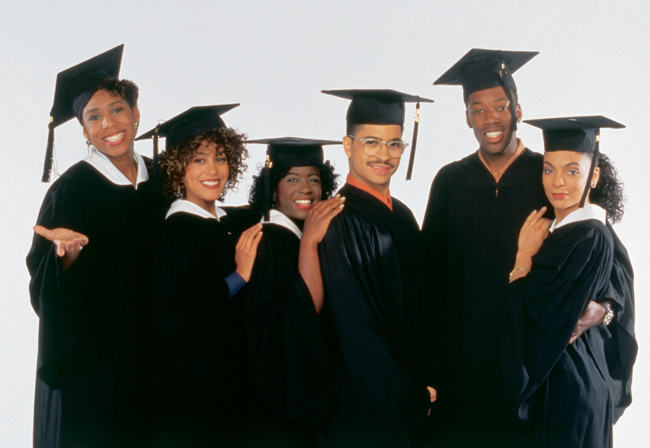
Via Diverseeducation.com
If Dr. Bill Cosby’s greatest contribution to the Black community was his creation of The Cosby Show, then the spin-off to the popular 1980s television sitcom about a fictitious historically Black college in Virginia named Hillman almost certainly comes in close behind.
Even as the 79-year-old actor and comedian faces mounting legal challenges, few — both Black and White — can deny the longevity and incredible success of his television creations, in terms of reshaping and redefining the lived experiences of Black people in America.
And while The Cosby Show has been yanked from syndication amid the ongoing allegations that Cosby sexually assaulted dozens of women dating back to the 1960s, A Different World — which launched on NBC almost 30 years ago — continues to be popular, even among current high school and college-age students who were born long after the show ended.
“My desire to have the Black college experience and attend an HBCU has definitely been shaped by A Different World,” says Khadijah Wells, 17, a high school senior who lives in Philadelphia and watches reruns of episodes on channel TV One nearly every day. “My mom and I still laugh at the same jokes. It’s a show that I think really helps to bridge the generations. It shows the positive side of Black life and I think that’s very important right now.”
As Wells begins the process of applying to colleges this fall, she’s already made up her mind that she only wants to attend an HBCU. Spelman College, Claflin, Howard and Hampton universities are all on her list.
Impact of Show
Wells’ admiration for the sitcom that ran from 1987 to 1993 and brought fame to its cast members such as Jasmine Guy, Kadeem Hardison and Darryl Bell is hardly surprising to Dr. Walter Kimbrough, president of Dillard University, a Black college in New Orleans.
“I think A Different World is powerful even in syndication today, especially over the past year where we’ve seen so much tension on college campuses,” says Kimbrough, who points out that, from the debut of The Cosby Show in 1984 until the end of A Different World in 1993, American higher education grew by 16.8 percent. During the same time period, HBCUs grew by 24.3 percent.
This spike in enrollment at HBCUs isn’t a coincidence, says Dr. Marybeth Gasman, director of the Center for Minority Serving Institutions at the University of Pennsylvania and an expert on HBCUs.
“A Different World brought HBCUs into the mainstream and presented them in very positive ways on a regular basis,” says Gasman, who is also a professor of higher education in Penn’s Graduate School of Education. “The show was made with care and demonstrated the ethos of HBCUs. Viewers got a chance to see the diversity among African-Americans.”
Finish reading the story at Diverse Issues in Higher Education.


